Artículo
Publication Types:
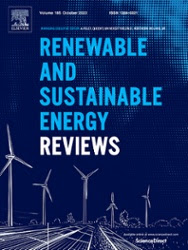
Just transitions to renewables in mining areas: Local system dynamics
Abstract
In the field of just energy transitions, local scales have been relegated and limited to qualitative approaches with non-specific methods by observation. Local quantitative approaches have gained popularity but remain far from the topic of just transitions and elude rural areas, probably because of data scarcity. Amid the quantitative panoply, system dynamics is attracting greater attention to alleviate such data shortages. Yet, despite the claim for holistic approaches, its application is scarce in rural contexts. This research presents an intuitive, scalable, and easily adaptable modelling exercise through system dynamics to estimate the effects on net employment and land availability of restructuring towards renewable energy sources in the rural mining areas of León (Spain), presenting possible lessons and policy implications for local and rural just transitions. A partially just transition is feasible in the short term, but a properly just transition is three decades late. The most optimistic projections suggest the potential creation of around five thousand jobs per zone, which is significantly fewer than the approximately forty-five thousand jobs that were recorded during the peak years of coal mining exploitation. Renewables fail to keep a young, qualified population in the areas, therefore showing the need to potentiate alternative activities, as well as causing sensitive trade-offs between land requirements and potential net employment. Land reductions for renewable projects vary depending on the scenario, ranging from 6 % to 17 %. This range poses a threat to the ecological integrity of these areas.
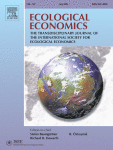
Welfare regimes as enablers of just energy transitions: Revisiting and testing the hypothesis of synergy for Europe
Abstract
Welfare States are considered key tools to provide just transitions. The hypothesis of synergy states that Social-democratic regimes are in a better position to accomplish them. While synergy has been widely theorised, its empirical verification has remained less studied and provided contradictory results. The weaknesses detected in the state-of-the-art, such as the misalignment of empirical testing and the theoretical drivers of synergy, as well as inconsistencies in the selection of variables and biases imposed by classifications in discrete timings, lead us to define an improved methodological framework. We apply the continuous observation of Ward’s hierarchical clustering in squared Euclidean distances under Thorndike’s criterium to twenty-three European countries between 2008 and 2016 and reject synergy after detecting that Social-democratic regimes display the best social conditions but the worst environmental performances and that society and the environment are not linked. This outcome motivates us to propose a discussion with a focus on the sustainability of economic growth and the opportunities for sustainable welfare scholarship to settle it.
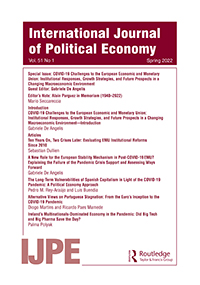
The Long-Term Vulnerabilities of Spanish Capitalism in Light of the COVID-19 Pandemic: A Political Economy Approach
Abstract
This article explores the evolution of Spain’s capitalism during the last decades in order to unveil the factors underlying the harshness with which the COVID-19 pandemic has impacted Spain. We present a twofold thesis. On the one hand, we argue that Spanish capitalism has harbored certain internal vulnerabilities, relative to its productive specialization, its labor market, its welfare institutions, and indebtedness levels, which successive boom and busts have reproduced and ultimately exacerbated. On the other hand, we contend that these various vulnerabilities have abruptly come to the fore with the irruption of the COVID-19 pandemic, thus accounting for its singularly dramatic consequences. In order to substantiate our hypotheses, we provide a political economy analysis of the recent trajectory of Spanish capitalism. The economic boom initiated in the 1990s developed various vulnerabilities, which the years following the onset of the Great Recession did not attenuate and to which various others were added during the last expansion phase, all coming to the fore with the sudden outbreak of the COVID-19 pandemic.

Political hate speech of the far right on Twitter in Latin America
Abstract
The purpose of this research was to study the spreading of political hate speech by the far right through Twitter. A mixed methodology was employed, combining both quantitative and qualitative tools, within the framework of digital ethnography. Five characteristic cases of campaigns linked to political hate speech were chosen, meeting the four criteria set: Latin American scope with representativeness in terms of breadth and impact, political motivation, more than 100,000 tweets, and massive use of fake accounts. The analysis was performed with T-Hoarder, Gephi and MAXQDA. The conclusions drawn are that these campaigns do not occur spontaneously. Rather, a destabilizing political intention lies behind them, sponsored by organizations with considerable ability to disseminate messages and with extensive funds. The massive presence of false accounts, the repetition of certain spelling errors in identical form and the striking increase in the number of accounts just before campaigns are evidence of the automation of these processes. The constant use of aggressive and disparaging terms associated with hatred triggers extreme polarization and a climate of tension, threatening the building and consolidation of democracy itself. Apart from punitive measures, there is a need to implement educational proposals.
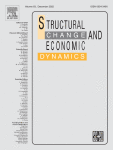
Foreign sector and welfare state in Sweden: From complementarity to tensions
Abstract
In this article, we analyse the relationship between the foreign sector and the ‘Swedish model’ of welfare state since the 1960s. The initial hypothesis is that the old relationship between the foreign sector and the Swedish welfare state during the expansion phase of the latter was mainly complementary, almost symbiotic, thus adhering to the compensation thesis. We ascertain that the different reforming waves of the late twentieth century transformed this relationship into one where the foreign sector became a source of distress, creating certain incomplementarities in the model. After reviewing the historical links between both, we examine their evolution over recent decades, paying special attention to transformations prompted by the process of globalisation. We conclude that the efficiency thesis best explains the current links between the foreign sector and the welfare state in Sweden.

Discurso político de odio de la ultraderecha desde Twitter en Iberoamérica
Abstract
La finalidad de esta investigación ha sido estudiar la difusión de los discursos políticos de odio de ultraderecha a través de la red social Twitter. Se ha seguido una metodología mixta, combinando instrumentos cuantitativos y cualitativos, en el marco de la etnografía digital. Se eligieron cinco casos característicos de campañas vinculadas a discursos políticos de odio que cumplían los cuatro criterios seleccionados mediante técnica Delphi: ámbito iberoamericano con representatividad por amplitud e impacto, motivación política, más de 100.000 tuits y uso masivo de cuentas falsas. El análisis se realizó mediante T-Hoarder, Gephi y MAXQDA. Las conclusiones muestran que estas campañas no surgen espontáneamente, sino que existe una intencionalidad política desestabilizadora detrás de ellas; vertebradas desde organizaciones con pautas de difusión muy marcadas y fuentes de financiación potentes. La presencia masiva de cuentas falsas, la repetición de determinadas erratas de forma idéntica y el llamativo aumento del número de cuentas en los momentos previos a las campañas evidencian la automatización de estos procesos. El uso constante de términos agresivos y despreciativos asociados al odio, consigue generar polarización extrema y un clima de crispación que constituye una amenaza a la construcción y consolidación de la propia democracia. Más allá de las medidas punitivas, se considera necesario implementar propuestas de carácter educativo.

Just energy transitions to low carbon economies: A review of the concept and its effects on labour and income
Abstract
The global environmental and social crisis has motivated the renaissance of just transitions, this time centred around the effects on labour and income distribution of the shift to a sustainable energy mix. This renewed conception has gone beyond its origins in the US unions in the 1970s to become a key element in many discourses worldwide, with different nuances. Over the last few years, it has found a place in the SDGs and gathered strong support from the ILO. As political frameworks and literature multiply, this work presents a systematic review of the concept, its evolution and the methodologies devoted to studying it. We make three major points. First, the empirical state-of-the-art has blurred the lines of the methodological classifications found in previous studies: CGE and IAMs are two of the most popular methods, with a growing interest in hybrid approaches and system dynamics. Additionally, while most studies focus on the national level, the regional level is gaining momentum to illustrate the asymmetric effects of the transition. Second, a certain consensus has been detected to point out a positive, yet relatively small, impact of the transition on net employment and a negative effect on income distribution. Third, there is a scarcity of research about income dynamics, while studies on labour are blind to the effects of the transition on the quality of jobs, the evolution of working hours and gender. These gaps have inspired the elaboration of a research agenda that is presented at the end of the work.

Gone with the Crisis? Welfare State Change in Europe Before and Since the 2008 Crisis
Abstract
The economic crisis has undoubtedly impacted welfare states through the austerity policies prioritised to purportedly lead economies back to a growth path. In this paper, we assess the effects of the crisis in those welfare states, focusing on income benefits and analysing cases of welfare state change before the crisis via gross replacement rates available through the OECD tax/benefits database. We begin with a literature review on impacts of the crisis on welfare states, then focus on our hypothesis that retrenchment trends were already in motion before the crisis. From our point of view, this is relevant to understanding the evolution of welfare states since 2001, particularly those effects attributable to the crisis (versus those that are not); this may also be of help in the prediction of future trends.
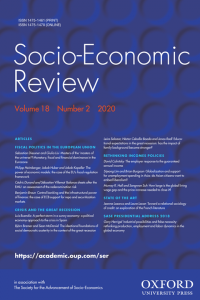
A perfect storm in a sunny economy: a political economy approach to the crisis in Spain
Abstract
Although Spain’s economy was seen as a miracle during the most recent expansive phase (for its labour market outcomes in terms of job growth, among other things), the economy’s development during those years suffered from severe problems that deserve attention. This became more relevant in a context like the current one, where there is no consensus around which economic policies might lead the country back onto a stable growth path. Using a systemic approach in which we analyse the growth model, the role of Spain in the European division of labour, the financial sector, the labour market, the public sector, and the distribution of income, we contend that, in contrast with several narratives concerning the crisis in Spain: (i) the ‘living-beyond-our-means’ discourse is not true; and (ii) certain political and economic aspects, usually missing in those narratives, are essential to understanding the recent evolution of Spain.
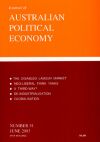
The impact of the 2008/9 crisis on inequality and poverty in Southern Europe: The case of Spain
Abstract
The issue of global economic inequality has increasingly drawn the attention of both scholars, NGOs and international institutions during the last decades. In addittion, the current economic recession has worsened previous trends of increasing inequalities. Drawing from the literature that deals with the effects of adjustment policies applied in several European economies since the beginning of the crisis, we focus our analysis on inequalities and poverty. In this paper we assess to what extent inequality and poverty figures have followed a different path in Southern Europe compared with the EU-15 average. Besides, we delimit the particularities of Spain within the set of what has come to be known in recent years as the European ‘periphery’. We defend two theses: i) worsening labour markets are one of the main factors explaining the increasing inequality in Southern Europe; and ii) the underdevelopment of Mediterranean welfare states, together with the economic, social, and political barriers to strengthening their position in recent years, prevents the public sector from offsetting the negative consequences of crisis on inequality and poverty figures.

Los Estados de bienestar europeos en transformación: el impacto de la crisis de 2008

Expansion and Retrenchment of the Swedish Welfare State: A Long-Term Approach
Abstract
In this paper we will undertake a long-term analysis of the evolution of the Swedish welfare state, seeking to explain that evolution through the use of a systemic approach. That is to say, our approach will consider the interrelations between economic growth (EG), the socio-political institutional framework (IF), and the welfare state (WS) − understood as a set of institutions embracing the labour market and its regulation, the tax system, and the so-called social wage − in order to find the main variables that elucidate its evolution. We will show that the expansive phase of the Swedish welfare state can be explained by the symbiotic relationships developed in the WS-EG-IF interaction; whereas the period of welfare state retrenchment is one result of changes operating within the socio-political (IF) and economic (EG) bases.

Economic Growth and Welfare State: A Case Study of Sweden
Abstract
In this article we analyse the relation between the dynamics of economic growth and the welfare state using the Swedish experience as a case study. We defend three theses concerning the Swedish experience: that the deep economic crisis of 1990–93 constituted the definite breaking point for the accumulation pattern in force since the 1950s (and in crisis since the mid-1970s); that the new accumulation pattern eroded the long-standing symbiotic relationships between economic growth and the welfare state; and that the welfare state has suffered retrenchments and qualitative changes of great importance, which can be fundamentally explained by the transformations in the accumulation pattern. We conclude that the changes introduced in Sweden have continued to subordinate the welfare state’s main goals, giving priority to the new accumulation pattern.
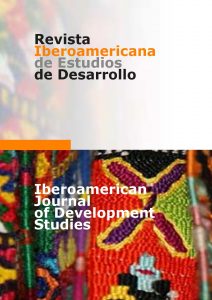
Metodologías para la evaluación del impacto en desarrollo de la ayuda reembolsable: la experiencia europea
Abstract
En este artículo se analizan las metodologías de evaluación del impacto en desarrollo de las operaciones financieras aplicadas por las principales instituciones bilaterales europeas de financiación del desarrollo (IEFD). Para ello, se identifican los criterios de selección de los proyectos financiados utilizando tanto una revisión de la literatura disponible (incluyendo sus propias páginas web) como entrevistas realizadas en las propias instituciones. El artículo concluye que las metodologías aplicadas por estas instituciones contienen limitaciones severas en la medida en que no incluyen un análisis del marco institucional en el que se desenvuelven dichas operaciones, razón por la que el impacto en desarrollo atribuido debe ponerse en entredicho.
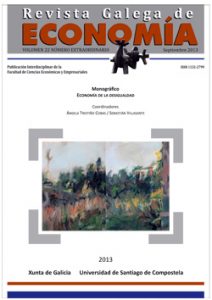
Estructura productiva, ciclo político y desigualdad: El caso de Uruguay, 2004-2011
Abstract
El triunfo electoral del Frente Amplio (FA) uruguayo en octubre de 2004 representaba en apariencia una ruptura con toda la política económica seguida hasta entonces y que desembocó entre los años 1999 y 2002 en una grave crisis económica. En este artículo se analiza el proceso iniciado con las reformas del FA, partiendo de la evolución de la estructura productiva del país, los cambios en la distribución primaria de la renta y, finalmente, la distribución secundaria y la pobreza. El trabajo concluye que, en términos de política social, la ruptura ha sido real y ha tenido lugar una importante reducción de la desigualdad. Sin embargo, y a pesar de reconocer las limitaciones derivadas de un período de análisis aún necesariamente poco prolongado, los cambios en la estructura productiva han sido menores, lo que pone en riesgo los logros anteriores ante coyunturas económicas menos propicias que las actuales.

¿Existió alguna vez un modelo social europeo? Evolución y perspectiva de los Estados de bienestar en Europa
Abstract
El presente artículo aborda la idea del «modelo social europeo» –expresión en boga en determinados círculos desde los años noventa– como construcción ideológica, en buena medida útil como opuesto al American way of life. Sin embargo, ya antes de la crisis, existían indicios que ponían en cuestión la existencia real de dicho modelo. Si bien es cierto que cabe hablar de cierta idiosincrasia social europea, también lo es que existe una notable diversidad en el seno de Europa. Un análisis detenido del contexto de la crisis pone de manifiesto que no ha habido convergencia real y que el signo de las políticas auspiciadas por la UE choca precisamente con los Estados de bienestar.
